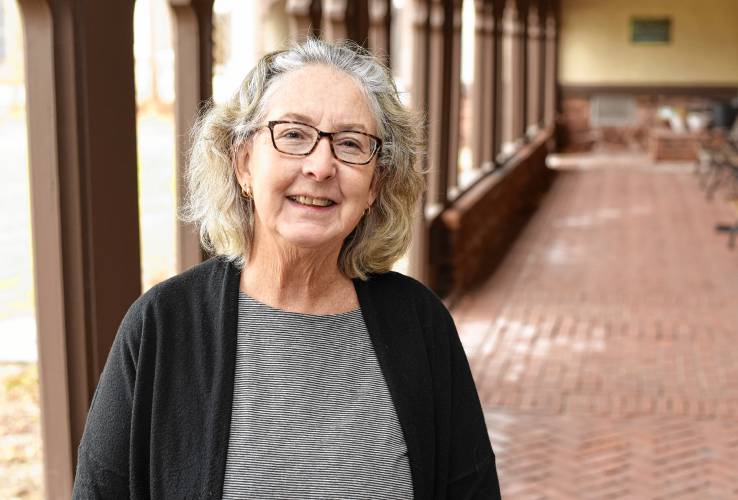|
I have a distinct memory of my mother taking me to see the film “King of Kings” – one of those traditional cinematic dramatizations of the gospel story – when it came out in 1961, and it included one very scary scene of Jesus meeting and healing lepers. It so stuck with me that I went to the public library and took out a book written by a former patient from Carville, Louisiana, the community where people afflicted by Hansen’s in the US were isolated and treated from the 19th century until late in the 20th.
We know now that Hansen’s Disease is not nearly as contagious as it was once believed to be, and because it is entirely treatable, it has been largely eliminated from the developed world. Before modern medicine, though, “lepers” were commonly segregated into colonies and cut off from contact with the rest of the community. In Jesus’ era (and beyond it,) the disease was often seen as judgment from God – not unlike the way that AIDS was viewed by many in the latter part of the 20th century. In today’s gospel story, then, ten folks suffering from Hansen’s seek out healing from Jesus. They were required to maintain a distance from other people, and so they simply called out “Jesus, Master, have mercy on us.” Seeing what troubled them, Jesus instructed them to “Go, show yourselves to priests”, and Luke tells us that “as they went, they were made clean” by God’s power. Jewish law at that time focused on clean or acceptable status and practice, and the priests were the guardians, rather like Board of Health. Only after certification by the priests could previously “unclean” persons return to their families and resume life within the community. Nine of those who Jesus sent to the priests were caught up in the moment, undoubtedly eager to receive their certification of health and take up their lives. But one “SAW that he was healed”, and he turned back and returned to Jesus to praise God and express his gratitude. Jesus’ response - "Get up and go on your way; your faith has made you well." There are different Greek words used in the New Testament to describe healing. One, that comes from the Greek therapueuo, describes a physical making well. The nine in today’s story were made well, made clean. A second, that derives from the Greek sozo, conveys a broader and deeper meaning, and is often translated as “to be made whole”, or even “to be saved”. The tenth leper was healed in a way that the others were not. He was changed, even transformed because he SAW his own healing and RESPONDED to it. We could say lots of things about what today’s gospel means, but certainly, one of its themes is that of gratitude. My three year old grandson is in the process of learning about polite behavior, and part of that includes saying “please’ and “thank you”. He has pretty well integrated that behavior, and needs only occasional reminders. The harder lesson, which we can’t teach, is that of actually FEELING gratitude. When I give my grandson sliced apple for his snack, does he comprehend how fortunate he is to have fresh, healthy food and a loving family who provide it to him every day? He’s definitely not there yet. I don’t even do as well as I would like to in pausing the SEE and value the gifts with which my life is abundantly full. The tenth man was made whole, even saved, because he saw the gift God had given him, and turned back, - he ACTED in his need to express his gratitude. In last week’s sermon Heather reflected on what it means to have faith. She observed that faith is a matter of “showing up”, of “forming the intention to trust in God”. She went on to describe faith this way: “To show up each day, with some intention to bring our best selves. To not be concerned with any kind of reward … Faith is not something we pay God to receive some magical, heavenly good. Faith is our love, our hope, our curiosity, our aches and longings to connect to the highest power in this universe and one another”, and to Heather’s list I would add our gratitude, “as well as a willingness to do our small part.” Living into a perspective of gratitude – as did the 10th leper – is another critical element of faith that has the power to make us whole. Living gratefully connects us to others – it breaks down our isolation and helps us to remember we are in relationship, that we are a part of community. Recognizing and acknowledging gifts helps us to sustain a positive outlook, which can certainly be difficult to do in this troubled world. The positive attitude that gratitude engenders in us involves
Gratitude is not only a right attitude because it’s healthy and spiritually fulfilling; it’s also appropriate. Nothing we enjoy in life is guaranteed. Everything is gift. It is gift that we choose how to respond to and how to use, whether to hold, and how to share. Let’s, then, do our best to live life with thanks on our lips and in our lives. Let’s always live our thanks to the God who has created us, who has shown us the way and saved us from lives of shallowness and meaninglessness, whose love sustains us in every moment. Comments are closed.
|
We are blessed to have a diversity of preaching voices in our parish. Our guild of preachers is a mixture of lay and clergy. We hope you enjoy the varied voices. Meet our Preachers
All
Archives
July 2024
|
